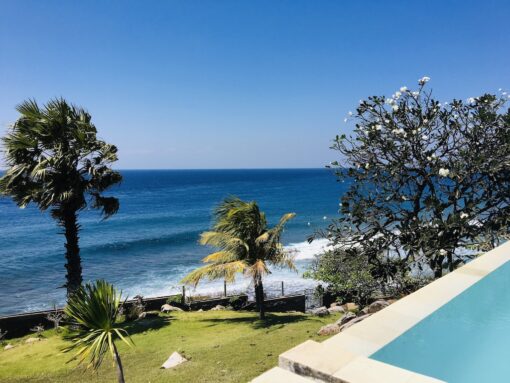
The Value Of Knowing What You Don’t Want
Have you ever wondered if where you are now is where you want to be? Are you consumed with trying to find out what you want – in your career, relationship, life itself? With ever-increasing choices, figuring out what we want is exhausting, even futile at times.
Do You Know What You Want?
Question is: do you know what you want? This came up when I was helping a friend with her retirement canvas. She confessed that she actually doesn’t know what she wants, even though she’s hitting the big 5-0 this year. How can she even start retirement planning with no inkling where she wants to be?
This is a dilemma many of us face. Many people go about every day without knowing their purpose or having a quest. It then becomes easy to fall into herd mentality, going along with the latest hype or trend, playing into other people’s manipulation. They like this or that because the reviews say so. They do this or that because everyone is doing it.
Is It For You?
For example, the idea of retiring overseas has gained momentum with many countries offering retirement visas such as Malaysia, Thailand, Philippines, Portugal and Spain. If you have never lived or worked for extended period overseas, can you appreciate what it takes to live in a different environment? Hyper-mobility, while presenting increased accessibility and lifestyle choices, also changes the concept of home.

Can you cope with the daily grind and integration into a new culture? Will it be easy to make friends who can become your support circle? Will you be able to pick up a new language, adapt to a new lifestyle? Can you put up with missing your family and friends back home? Will you loose your sense of identity under the assault of a new culture and environment?
Know What You Don’t Want
Somehow we are expected to know what we want. Society, well-meaning parents, friends, colleagues, the media…they tell us what we want. Instead of diving introspectively to ascertain ourselves, many simply accept the ‘wants’ being imposed upon us. Because it’s easier than in-depth soul-searching. But that’s not living your life, is it?
While I don’t always know what I want, I do know what I don’t want. This pile of “I don’t want’s” built up over the years has helped me avoid people, things and situations that are unwelcome into my life. It has saved me precious time, kept me focused, protected my sanity and improved my decision-making, and overall life.

A personal example: I co-founded a start-up right after stopping work as I thought having a purpose is important in retirement. The start-up scene was buzzing (still is) and it felt meaningful to draw on years of experience and contacts to build a business from scratch. At point of founding, I really thought it was what I wanted and together with my co-founder, we poured our heart mind and soul into the start-up.
At the end of 2nd year, despite building momentum and a small string of successes, a family emergency broke into my start-up frenzy. It made me stop and think if that was the life I was prepared to live for the next 8-10 years, before any exit strategy can be implemented. I felt trapped by my dream, of my own choice. Instead of spending time on the golf course, doing laps in the pool during the day, spending time with family and friends, I was caught up 16 hours a day on the venture. No amount of free coffee, chocolates and apples were worth spending every waking hour cooped up in a co-working space.
By asking myself a series of questions and answering honestly, I reached my decision. A monumental decision indeed. I sold my shares for a token $1 and pulled out. $1 to buy back my life, I was lucky in this instance. This is what I call elimination decision making, ie decide by filtering what I don’t want.
Remember those multiple choice questions in school where we had to choose between A, B, C and D options? You probably used elimination when you had no clue what the right answer was, filtering out what you knew was the wrong answer(s).

In real life though, what you don’t want is very clear so there is no ambiguity. By avoiding what you don’t want, you repel the unwanted from your life.
Actually, knowing what you don’t want is more valuable, because:
-
- Focusing only on what you want is limiting – limited to what you know.
-
- Keeping at bay what you don’t want opens up opportunities for new things. For until you try something, how do you know whether you would like it? Maybe you will fall insanely in love with it? Give serendipity a chance.
-
- It saves time, energy and possibly money in some instances.
-
- Being too focused on what you want leads to tunnel vision, causing you to disregard peripheral signals. For instance, finding a partner who ticks all your boxes like the same hobbies, ambitions and social status in life but you ignore the fact that he’s dishonest.
-
- Trying to figure out what you want is hard work.

So start making decisions by rejecting what you don’t want. It is a great way of setting non-negotiables in your life, like red-lines that shouldn’t be crossed. When you start doing this, your decision-making will improve. And so will the quality of life of your life.
Don’t you want to give it a try?
Savvy Maverick
(Main image: Benjamin Wong, Unsplash)
Disclaimer: The views expressed here are drawn from my own experiences and do not constitute financial advice in any way whatsoever. Nothing published here constitutes an investment recommendation, nor should any data or content be relied upon for any investment activities. It is strongly recommended that independent and thorough research be undertaken before making any financial decisions, including consulting a qualified professional.
